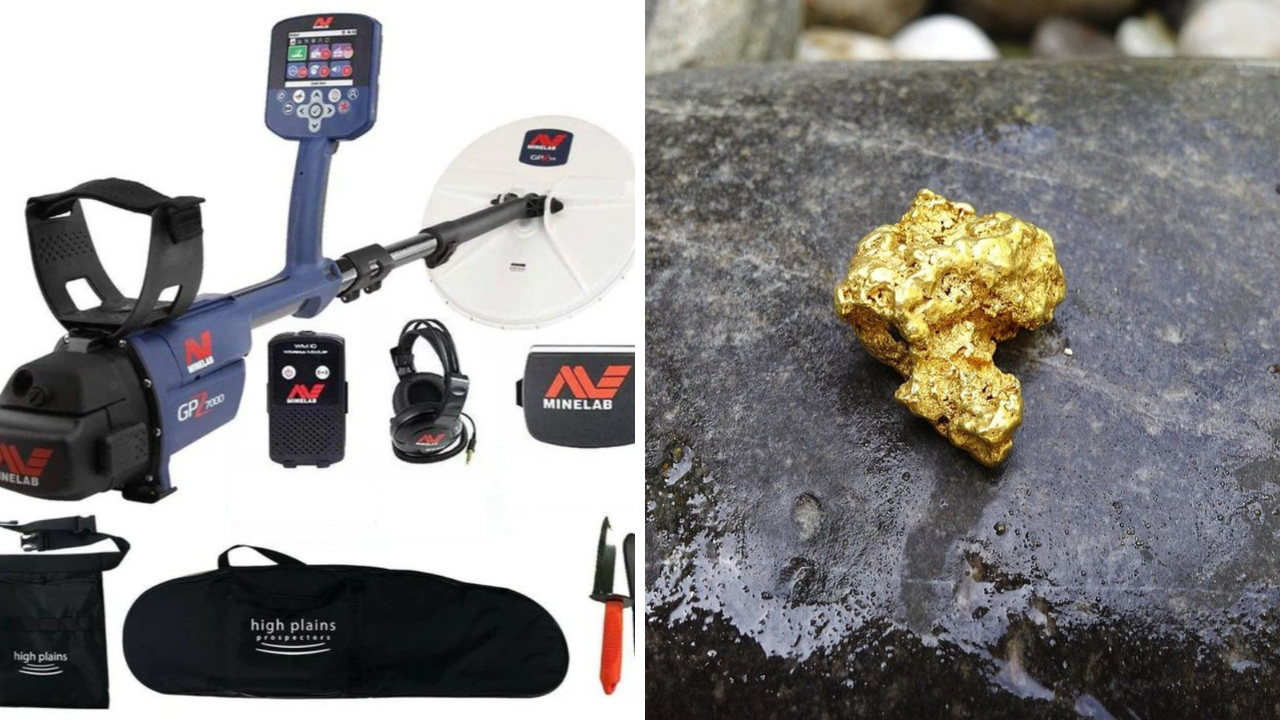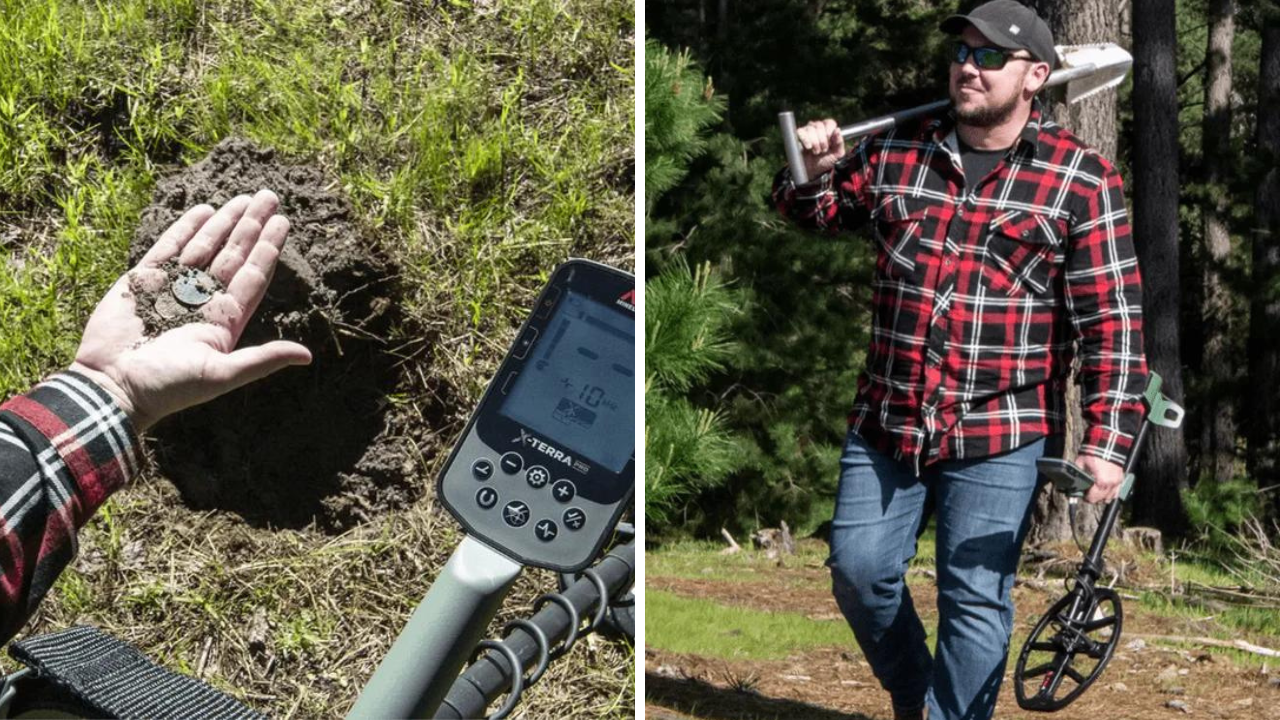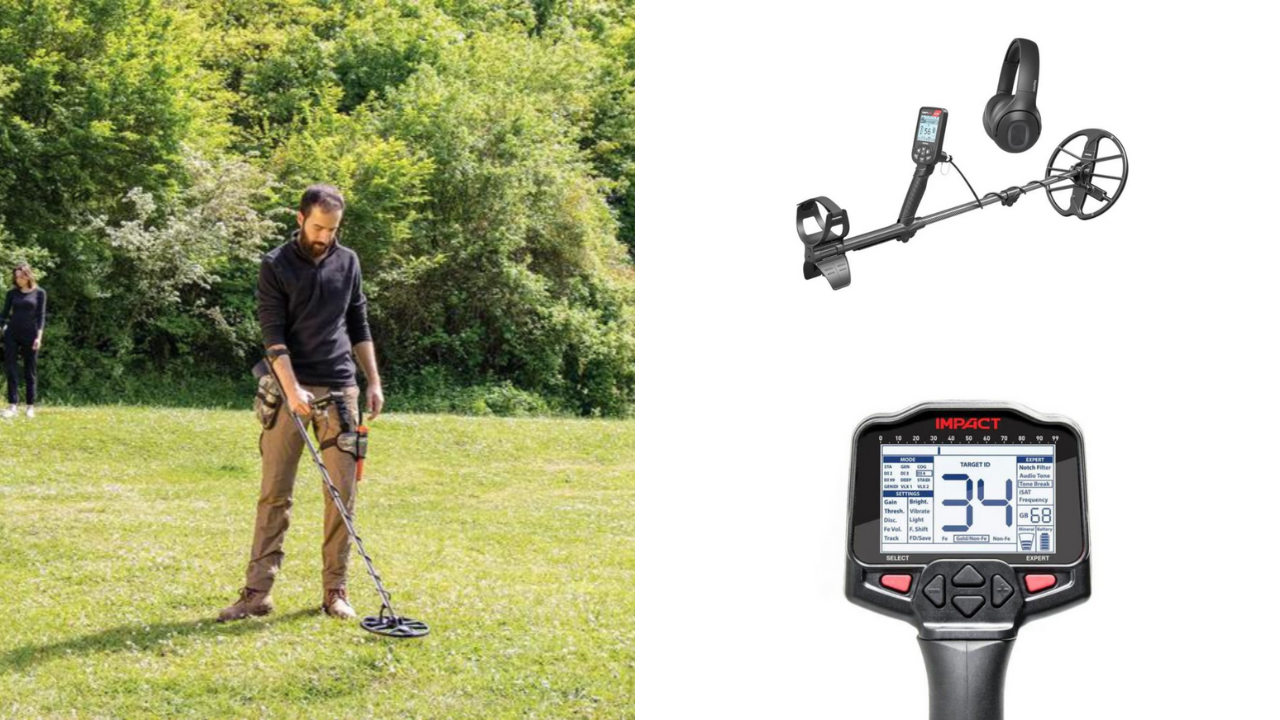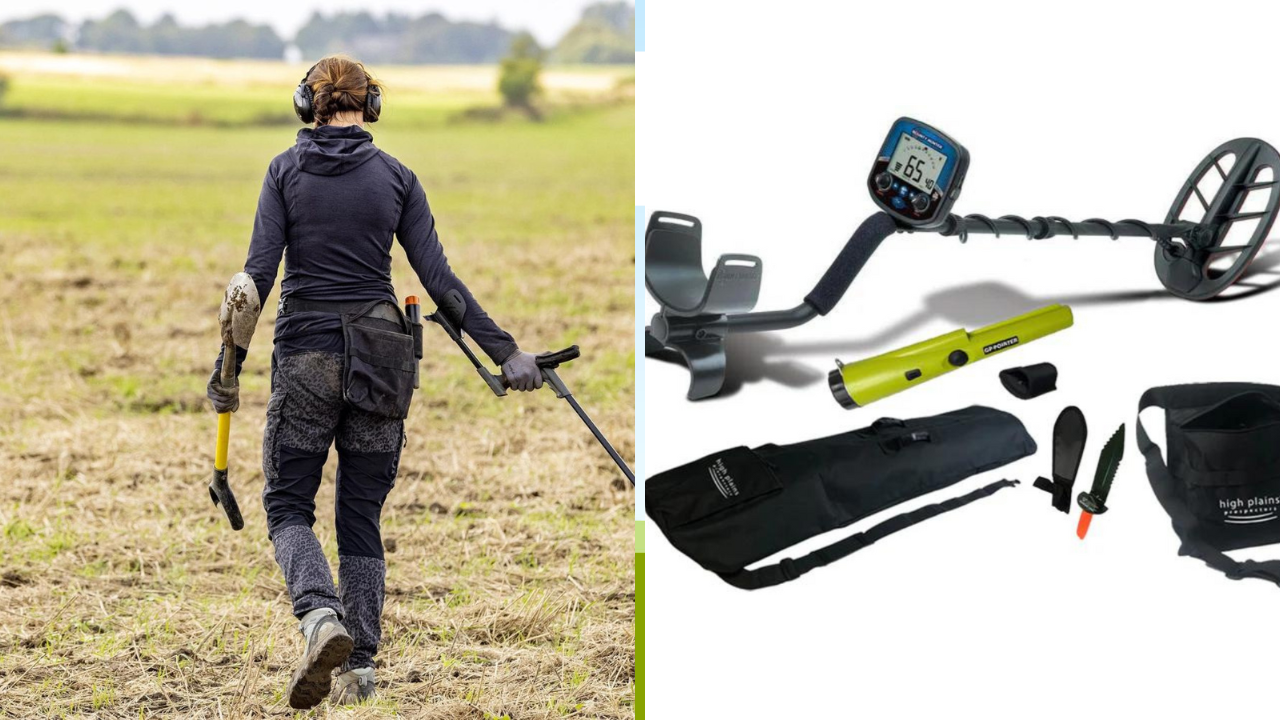Metal detecting is a fascinating hobby that combines the thrill of treasure hunting with the joy of exploring the outdoors. Whether you're a seasoned metal detectorist or a beginner, knowing the best places to metal detect can significantly enhance your chances of finding valuable items.
This article will guide you through some of the top spots to explore, from public parks to historical sites, and provide tips on how to make the most of your metal detecting trip.

1. Public Parks
Public parks are a treasure trove for metal detecting enthusiasts. These areas are frequented by people who often lose items like coins, jewelry, and other valuable items. The best places to search in parks are around picnic areas, playgrounds, and sports fields where people congregate and are likely to lose things.
When metal detecting in public parks, it's essential to follow local rules and regulations. Some parks may require a permit, while others might have specific areas designated for metal detecting. Always fill in any holes you dig and leave the area as you found it to ensure that metal detecting remains a welcomed activity.

2. Beaches
Beaches are another excellent location for metal detecting. The towel line, where people lay their towels, is a hotspot for finding lost items like coins, jewelry, and even gold rings. Saltwater beaches, in particular, can be very productive due to the high number of visitors.
When metal detecting on beaches, pay close attention to the tides. Low tide exposes more of the beach, giving you access to areas that are usually underwater. Additionally, the wet sand near the waterline can be easier to dig and often yields more finds. Remember to check local laws and obtain any necessary permits before starting your search.

3. Old Homesteads
Old homesteads are rich in history and can be great places to metal detect. These sites often have older coins, relics, and other items that can provide a glimpse into the past. Look for areas around old foundations, wells, and shade trees where people would have spent time.
Before metal detecting on private land, always obtain explicit permission from the property owners. Respect their property and follow any guidelines they provide. In some cases, you might even find that the property owners are interested in the history of their land and can provide valuable information about where to search.

4. Historical Sites
Historical sites, such as old battlefields and archaeological sites, can yield some of the most exciting finds. These areas are often rich in artifacts with historical significance, such as old coins, buttons, and military relics. However, metal detecting at these sites can be more challenging due to strict regulations and the need for explicit permission.
Before metal detecting at a historical site, research the local laws and obtain any necessary permits. Some sites may be protected, and metal detecting could be prohibited. Always respect the historical significance of these areas and report any significant finds to the appropriate authorities.

5. School Yards
School yards are another great place to find coins, jewelry, and other lost items. Children often lose things while playing, making these areas productive hunting grounds for metal detectorists. Focus on areas around playgrounds, sports fields, and where children congregate during recess.
When metal detecting in school yards, it's crucial to obtain permission from the school administration. Some schools may have specific rules about metal detecting on their property, and it's essential to respect these guidelines. Additionally, avoid metal detecting during school hours to ensure the safety and privacy of the students.

6. Sports Fields
Sports fields are popular spots for metal detecting due to the high number of people who use them. Items like coins, jewelry, and other valuables can easily be lost during games and practices. Focus on areas around the sidelines, bleachers, and where people tend to gather.
Before metal detecting on sports fields, check with the local authorities or property owners to ensure you have permission. Some fields may have specific rules about metal detecting, and it's essential to follow these guidelines. Always fill in any holes you dig and leave the area as you found it to maintain a positive relationship with the community.

7. Campgrounds
Campgrounds are excellent places to metal detect, especially around fire pits, picnic areas, and trails. Campers often lose items while setting up their tents, cooking, or hiking, making these areas productive for finding coins, jewelry, and other valuables.
When metal detecting at campgrounds, be mindful of other campers and follow any rules or regulations set by the campground management. Some campgrounds may require a permit or have designated areas for metal detecting. Always respect the environment and leave no trace of your activity.

8. Old Railroad Lines
Old railroad lines can be fascinating places to metal detect. These areas often have a rich history and can yield older coins, relics, and other items. Focus on areas around old stations, loading docks, and where people would have gathered.
Before metal detecting along old railroad lines, research the ownership of the land and obtain permission if necessary. Some railroad lines may be on private property or have specific rules about metal detecting. Always respect the property and follow any guidelines provided by the landowners.

9. City Parks
City parks are another popular spot for metal detecting. These areas are frequented by people who often lose items like coins, jewelry, and other valuables. Focus on areas around playgrounds, picnic areas, and where people tend to gather.
When metal detecting in city parks, it's essential to follow local rules and regulations. Some parks may require a permit, while others might have specific areas designated for metal detecting. Always fill in any holes you dig and leave the area as you found it to ensure that metal detecting remains a welcomed activity.

10. Old Churches
Old churches can be great places to metal detect due to their historical significance. These sites often have older coins, relics, and other items that can provide a glimpse into the past. Focus on areas around the churchyard, pathways, and where people would have gathered.
Before metal detecting on church property, always obtain explicit permission from the church administration. Respect their property and follow any guidelines they provide. In some cases, you might even find that the church administration is interested in the history of their land and can provide valuable information about where to search.

11. State Parks
State parks are excellent places to metal detect, especially around picnic areas, trails, and beaches. These areas are frequented by visitors who often lose items like coins, jewelry, and other valuables. Focus on areas where people tend to gather and spend time.
When metal detecting in state parks, it's crucial to follow local rules and regulations. Some parks may require a permit, while others might have specific areas designated for metal detecting. Always fill in any holes you dig and leave the area as you found it to ensure that metal detecting remains a welcomed activity.

12. Old Battlefields
Old battlefields are rich in history and can yield some of the most exciting finds. These areas are often rich in artifacts with historical significance, such as old coins, buttons, and military relics. However, metal detecting at these sites can be more challenging due to strict regulations and the need for explicit permission.
Before metal detecting at an old battlefield, research the local laws and obtain any necessary permits. Some sites may be protected, and metal detecting could be prohibited. Always respect the historical significance of these areas and report any significant finds to the appropriate authorities.

13. Private Property
Private property can be a goldmine for metal detecting, especially if the land has a rich history. Focus on areas around old foundations, wells, and shade trees where people would have spent time. These areas often yield older coins, relics, and other valuable items.
Before metal detecting on private property, always obtain explicit permission from the property owners. Respect their property and follow any guidelines they provide. In some cases, you might even find that the property owners are interested in the history of their land and can provide valuable information about where to search.

14. Local Parks
Local parks are another great place to find coins, jewelry, and other lost items. These areas are frequented by people who often lose items while playing, picnicking, or exercising. Focus on areas around playgrounds, picnic areas, and where people tend to gather.
When metal detecting in local parks, it's essential to follow local rules and regulations. Some parks may require a permit, while others might have specific areas designated for metal detecting. Always fill in any holes you dig and leave the area as you found it to ensure that metal detecting remains a welcomed activity.

15. Old Maps
Using old maps can help you find great places to metal detect that you might not have considered. These maps can show you where old homesteads, schools, and other significant sites once stood. Focus on areas that are now public land or where you can obtain permission to search.
When using old maps for metal detecting, it's essential to do your research and verify the information. Some sites may no longer exist or could be on private property. Always obtain explicit permission from property owners and follow any guidelines they provide.

Some Final Thoughts
Metal detecting is a rewarding hobby that can lead to exciting discoveries and a deeper appreciation for history. By exploring the best places to metal detect, such as public parks, beaches, old homesteads, and historical sites, you can increase your chances of finding valuable items. Always remember to follow local laws, obtain explicit permission when necessary, and respect the environment and property owners. Happy hunting!
Stuff You Need To Know!
Here at TopRatedStuff.com the outdoors is our home. We offer comprehensive reviews on all outdoor gear, sporting goods, and many other top rated products. If you’re a Camper/Backpacker/Fisherman, we’ve got you covered!
If you’re into Tennis/Golf/Pickleball, we’ve got everything you need including informative tutorials and informational articles. Maybe you’re a Prospector/Miner? We’ve got all the gear you need to get started and many great articles that will help you succeed!
We read through countless reviews online and only talk about the best rated top selling products so you can skip all the research and purchase whatever it is you’re looking for, quickly and efficiently!
Thanks Again for checking out our site and we hope you come back and visit us for any of your purchases! Natures gym is always open! Find your Zen outside!
FAQ's
Do I need a permit to metal detect in public parks?
Yes, some public parks require a permit for metal detecting. It's essential to check with the local authorities or park management to understand the specific rules and regulations for metal detecting in the area.
Can I metal detect on private property?
Yes, you can metal detect on private property, but you must obtain explicit permission from the property owner before starting your search. Respect their property and follow any guidelines they provide.
What are the best tools for metal detecting?
The best tools for metal detecting include a high-quality metal detector, a digging tool, a pinpointer, and a finds pouch. It's also helpful to have a pair of gloves, a small brush for cleaning finds, and a map or GPS device to navigate your hunting grounds.















Member discussion